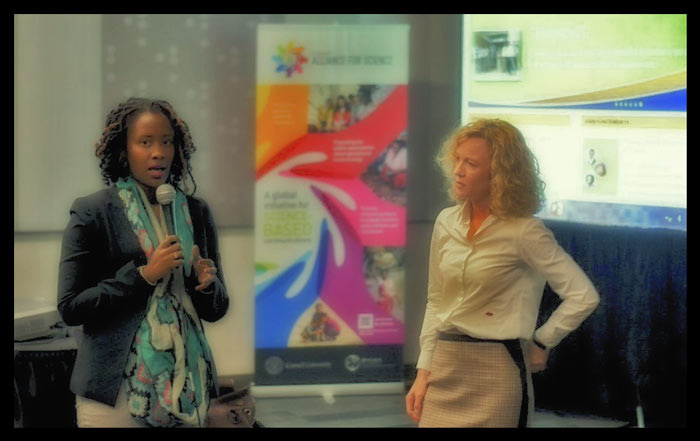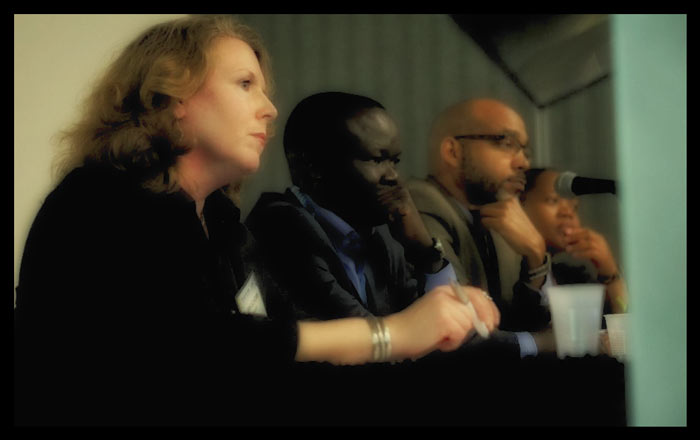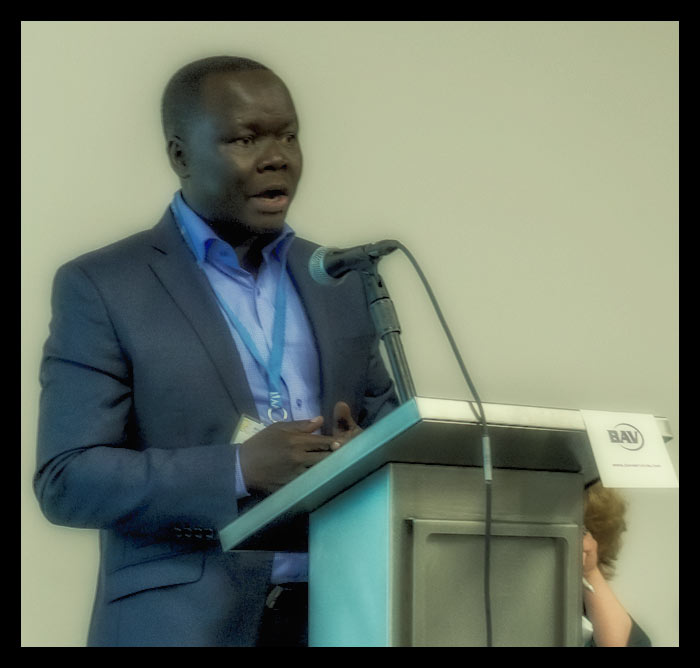Connecting Science and Policy in Africa

One of the most surprising insights from the “Access to Scientific Expertise in Fast Growing African Countries” panel session was that long-form journalism was driving evidence-based policy making, according to Nick Ishmael Perkins, Director of SciDev.Net.
Yet this was hardly a solution to the underlying problem: a growing demand for scientific expertise, but a research base lacking the networks, training, or even practice of engaging with policy makers. As a consequence, civil society groups were not systematically using scientific evidence to drive policy. Structures, intermediaries were needed, said Perkins, to link science to policy. One answer from the audience: create fellowships that place scientists among government officials, similar to that of the American Association for the Advancement of Science policy fellows in the US.

From left, Ylann Schemm from Elsevier (who discussed improving access to research), Daniel Otunge, Nick Ishmael Perkins, and Thandi Mgwebi. Photo: Max Goldman
The call was echoed by Thandi Mgwebi of the South African National Research Foundation, who said there was a need for strategic partners capable of promoting science in society.
One can easily relax into the delights of abstraction at a scientific conference and the thrills of innovation; but the February 14 session on Africa, jointly put on by the UK Sense About Science and Cornell University’s Alliance for Science, drove home the critical need for science policy engagement in the developing south, where getting the evidence right can be a matter of life and death.
As Daniel Otunge of the African Agricultural Technology Foundation pointed out, rising temperatures in Africa were a threat to subsistence farmers; what they needed were biotech solutions (i.e., drought resistant crops); what they were getting was NGO fear mongering. Listening to the needs of people should be driving science policy.
Not all the problems facing Africa were particular to Africa. As Perkins observed, non-scientists are the same the world over: they want context for research that is often cognitively inaccessible: “Don’t tell me the facts,” said Perkins, “tell me what they mean.”

